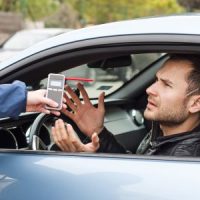4 Ways To Challenge Breathalyzer Test Results

In Indiana, if you are suspected to be operating a vehicle under the influence of alcohol, a law enforcement officer may request you to take a breathalyzer test. You may also be asked to take a breathalyzer test if you are involved in an accident in which alcohol use is suspected. Indiana has implied consent laws. This means that, as a driver in Indiana, you have consented to submit to chemical tests, including breathalyzer tests. Refusing to take a breathalyzer test may result in consequences. A breathalyzer test is meant to determine your blood alcohol concentration (BAC). The BAC limit in Indiana is 0.08%. If you take a breathalyzer test and your BAC is at or over 0.08%, you may be charged with operating while intoxicated (OWI). However, if you take a breathalyzer test and the results show that you are over the legal limit, it does not mean that you are definitely going to be convicted of drunk driving. Just because breathalyzer test results say your BAC is over the legally allowed limit does not mean it actually is. Sometimes, breathalyzer test results are inaccurate.
There are many ways a breathalyzer test can give inaccurate results. If a breathalyzer test produces incorrect results, those results can be challenged. Whether a challenge will be successful or not depends on the specific facts of the case. That said, the following are four arguments you can raise to challenge breathalyzer test results;
Calibration and Maintenance Problems
For a breathalyzer device to function correctly and provide accurate results, it must be regularly calibrated and maintained. A breathalyzer device that has not been properly calibrated or maintained can give inaccurate results. To determine if the device that was used to take your BAC reading was properly calibrated and maintained, request calibration and maintenance records of the device. If there are any signs that the device was neglected, it could be grounds for challenging the breathalyzer test results.
Officer Mistakes
If the police officer who used the device on you made a mistake, you could have a basis for challenging the breathalyzer test results. For example, if the officer did not follow the correct procedure, it could be grounds for challenging the breathalyzer test results.
Officer Training
After being arrested on suspicion of DUI/OWI, you should ask about the training of the officer who administered the breath test. You may be able to challenge breathalyzer test results if you can show that the officer who administered the test is not trained to use a breathalyzer device correctly.
Medical Condition
Some medical conditions can affect breathalyzer test results. Some of the medical conditions that can affect breathalyzer test results include GERD, hypoglycemia, diabetes, and liver diseases. For example, GERD is a medical condition that causes stomach acid to repeatedly flow back into the esophagus. GERD can lead to alcohol vapors coming from your stomach and into your esophagus, thus leading to inaccurate breathalyzer test results.
Contact an Indianapolis OWI Lawyer
If you have been arrested for OWI after the breathalyzer test results showed that your BAC was above the legally allowed limit, you need to speak to an attorney as soon as possible. An attorney can help you determine if there is any way to challenge your breathalyzer test results. Contact our Indianapolis OWI lawyer at Rigney Law LLC to learn if there is any way to challenge your breathalyzer test results.
